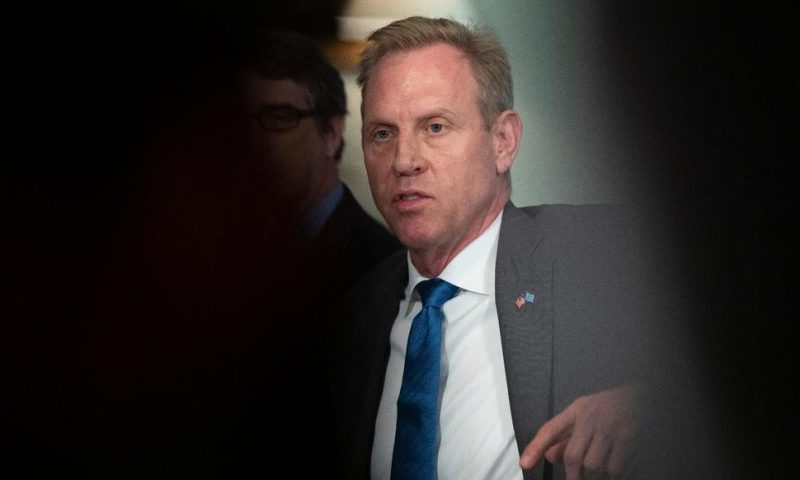The Pentagon has ordered an end to Turkey’s involvement in the F-35 fighter jet program as of July 31, if Ankara continues its purchase of a Russian missile defense system.
WASHINGTON — The Pentagon on Friday told Turkey that it is cutting off Ankara’s purchase of F-35 fighter jets if the Turkish government goes ahead with plans to buy a Russian missile defense system, ratcheting up what has been a lengthy, heated dispute between the two NATO allies.
In a sharp two-page letter, Acting Defense Secretary Patrick Shanahan said the training of Turkish pilots will end July 31 and Turkey would not be allowed to take final possession of the four F-35 aircraft it bought. Shanahan also warned that Ankara’s purchase of the Russian system could hamper America’s future relationship with Turkey, which has been a critical U.S. partner and base for combat operations, including for the war in Syria.
“Turkey’s procurement of the S-400 will hinder your nation’s ability to enhance or maintain cooperation with the United States and within NATO,” Shanahan said in a letter to Turkish Defense Minister Hulusi Akar that was released Friday. The S-400 purchase, he added, will “lead to Turkish strategic and economic over-dependence on Russia.”
Shanahan also warned that his decision to end Turkey’s participation in the F-35 program could be followed by other U.S. actions, saying that members of Congress support imposing sanctions on the Turks. Sanctions, he said, could threaten President Donald Trump’s commitment to more than triple U.S. trade with Turkey.
Shanahan and other U.S. defense officials stressed that these decisions are not irreversible and that conditions can return to normal if Turkey forgoes the Russian system.
The U.S. has repeatedly warned Ankara that the Russian system is considered a threat to the F-35, which costs about $90 million per aircraft. But Turkish leaders have moved steadily along with the purchase, calling it a “done deal.” U.S. officials say Turkey should buy the American Patriot missile system instead, but those negotiations have appeared to make little progress.
Akar told reporters late last month that Turkish military personnel are already receiving training on the S-400 and that Ankara was “making preparations” and “considering all options” against possible U.S. sanctions on Turkey over the purchase.
Turkish leaders suggested last month that they were talking with the U.S. about a proposal for the establishment of a joint committee to review the S-400s possible risks to the U.S. F-35 program.
But on Friday, Ellen Lord, defense undersecretary for acquisition, said flatly that the U.S. has made it clear that “we are not going to discuss technical mitigations to the S-400.”
Asked if the U.S. will reimburse Turkey for the four fighter jets it bought, Lord said those details are being worked out. She added that the fact that the two nations continue to have discussions and exchange letters on the matter suggests that there is a desire to find a way forward.
Calling it a “disciplined and graceful wind down” of Turkey’s participation” in the program, Lord said that the U.S. is already looking for other contractors to produce the more than 900 parts for the aircraft that are being produced by Turkish companies. She said that some of the parts are for landing gear and fuselage and that moving to other contractors might take until sometime next year.
In his letter, Shanahan said that unless Turkey dumps plans to buy the S-400:
— All Turkish personnel will have to leave the U.S. by July 31.
— About 30 pilots can finish their training on the F-35, but others who have recently begun training or are scheduled to start in the next few months will not be allowed to continue.
— Turkey will not be allowed to participate in a program meeting next week.
— Delivery of F-35 materials is suspended.
Lord said that the U.S. is also prepared to take any of those steps sooner if Turkey takes possession of the S-400 more quickly.

